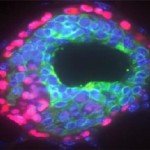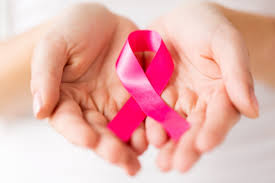Overview
As it is more than clear from the name kidney cancer starts in the kidneys. In this article we discuss the functions of the kidneys and the different types of cancers that can inflict this important organ of the body. The information is presented with the objective that early detection improves chances of cure.
As mentioned above cancer that originates in the kidneys is termed as kidney cancer. Let us start by understanding the kidneys and their functions.
What are kidneys?
These are bean shaped organs nearly the size of a human fist and attached to the upper wall of the abdomen. These are placed on both sides of the backbone and are protected by the lower rib cage. Just above the kidneys are the adrenal glands. Both the glands and the kidneys are surrounded by a thin fibrous layer and fat. The kidneys perform the job of filtering the blood that comes from the renal arteries to eliminate excessive water, salt and other waste products. These products are excreted from the body in the shape of urine.
Urine leaves the kidneys through ureter (thin long tubes) that is connected to the bladder. The urine remains stored in the bladder till one urinates. Along with this, the kidneys are responsible for
- Controlling blood pressure
- Maintaining the level of red blood cells
The kidneys are a very important part of the human body, but the truth is that even with less than one kidney a human body can function normally. There can be cases where patients have to rely on external machines (dialysis) for carrying out normal functions of kidneys.
The different types of cancers that may affect this part of the body are:
- Renal Cell Carcinoma (RCC)
This is the most common type of cancer affecting this part of the body. Nearly 90% of cases of kidney cancer are of this category. This type of cancer grows as a single tumor in a kidney. It is also possible that there may be more than one tumor in a kidney or there may be a tumor in each kidney. There are further different types of renal cell carcinomas depending on the type of cancer cells as observed under the microscope. Different types of RCC are:
o Clear cell renal cell carcinoma: The cells look pale under the microscope
o Papillary renal cell carcinoma: Under the impact of certain type of dyes these cells look pink in color under the microscope.
o Chromophobe renal cell carcinoma: These cells are pale as in clear cell but much larger in size.
In addition to the above there are other types of RCC that are not very common. There could also be a possibility that a renal cell carcinoma may not fall under any of the specified types. In such a case it is termed as unclassified renal cell carcinoma.
Other type of kidney cancers that have been observed include:
- Transitional cell carcinoma or Urothelial carcinomas
These do not start in the kidney but rather in the lining of the renal pelvis. This is the area where the urine goes before moving into the ureter. The lining is made of transitional cells that resemble the cells lining the bladder and the ureter. This type of cancer is usually treated with surgery which may or may not be followed by adjuvant therapy. Early detection improves the chances of survival considerably.
- Wilms tumor (nephroblastoma)
This often inflicts children. It is rare amongst adults.
- Renal sarcoma
These ate a rare category. They begin in the blood vessels or the connective tissue of the kidneys.
Benign (non-cancerous) kidney tumors
Some of the kidney tumors can be benign meaning non-cancerous. They do not spread to other body parts but still have the potential of growing and causing problems. These tumors may be removed or destroyed. The decision on the type of treatment is dependent on multiple factors like size, symptoms, location, number and general health of a person.
- Renal adenoma
These are the most common of the benign tumors. They are small in size and grow slowly and can be easily detected in CT Scans.
- Oncocytoma
These are benign tumors that tend to grow large in size. As these do not spread to other organs surgery works well in their case.
- Angiomyolipoma
Tuberous sclerosis, a genetic condition is found to be behind this rare type of cancer. The genetic condition also tends to affect the heart, eyes, lungs and the skin. The tumors in this type are often made of different types of connective tissues. In case the tumor is not causing any discomfort or problems it is simply observed.
The reasons for kidney cancer are not clear. Research is underway to determine and understand changes in DNA of a normal kidney that may lead them to be cancerous. Kidney cancer can also be the result of inherited genes. Tobacco increases the chances of kidney cancer. Obesity is another important risk factor for kidney cancer.
The treatment that may be given for kidney cancer is dependent on the size and its stage. Surgery is the most common treatments offered for removing cancer cells. Chemotherapy is not considered to be effective for treating of kidney cancer. The symptoms of kidney cancer are discussed separately.











